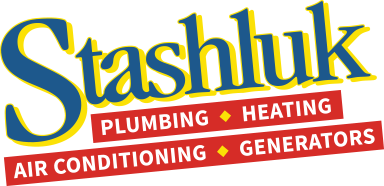New Jersey winters can be harsh. As HVAC professionals in the state for over 75 years, we’ve seen firsthand how our cold temperatures, wind, snow, and ice storms impact furnace lifespan. When furnaces aren’t maintained or designed to withstand extreme weather conditions, homeowners risk equipment failure, skyrocketing energy bills, and dangerous carbon monoxide buildup.
In this article, we’ll share insights on how New Jersey winters uniquely impact furnaces. We’ll also provide tips for running your system efficiently and safely through our coldest months.
Don’t let a malfunctioning furnace leave your New Jersey home cold this winter. Contact E.J. Stashluk & Sons Inc. at 908.277.6200 immediately to schedule expert furnace repair and ongoing maintenance services that keep your family warm and safe all season.

How Extended Cold Snaps Strain Furnace Components
Heat Exchangers and Burners
Freezing temperatures force New Jersey furnace repair furnaces to run overtime. This strains components like heat exchangers and burners. As an HVAC professional, we’ve seen heat exchangers crack under pressure during cold snaps of 10°F or below lasting over a week. Burners may also misfire or fail to ignite. This reduces heating efficiency dramatically.
Blowers and Motors
Blowers and motors push hot air through ductwork. Running nonstop in winter, blowers strain motors. We often see motors overheat or seize altogether. Furnace blower repairs are some of my most common cold-weather service calls. Upgrading the blower motor horsepower helps withstand harsh winter runtimes.
Thermostats
Frigid outdoor temperatures trick thermostats into thinking indoor temperatures are hotter than they are. This causes systems to shut off before reaching the target temp. Smart thermostats help minimize this “phantom heat” effect.
Refrigerant Lines
Outdoor condenser units contain refrigerant lines that enable cooling functions. In winter, refrigerant lines can freeze over. This prevents the furnace from running at all. Keeping condenser units clear of snow buildup helps avoid this icing over.
How Icy Conditions Lead to Combustion Issues
Blocked Vents & Intakes
Furnace vents and intakes easily get blocked by snowdrifts or icicles. Blocked vents prevent systems from drawing in clean air for combustion. Similarly, blocked intakes stop expelled gases from venting outdoors. This carbon monoxide backs up inside, an extremely dangerous scenario we work hard to prevent through New Jersey furnace repair.
Faulty Flame Sensors
A small flame sensor device verifies a burner’s pilot light is ignited. Icy weather can lead to cracked sensor wiring or corrosion buildup. Faulty sensors shut systems down to prevent gas leaks or explosions. Professionally cleaning flame sensor wiring prevents cold weather shutdowns.
Why Proper Maintenance is Crucial Before Winter
Ignoring furnace problems until indoor temperatures start dropping is asking for a breakdown. We recommend New Jersey homeowners have HVAC systems serviced in the fall to prepare for harsh conditions. Key maintenance we provide includes:
Cleaning Ducts
Maximizing airflow efficiency allows furnaces to circulate warm air better using less energy. Professionally deep cleaning ductwork once per year removes particulate-blocking airflow.
Replacing Filters
Clogged filters reduce system performance significantly. Swapping out old filters for fresh ones keeps air flowing freely through the furnace.
Inspecting Heat Exchangers
As heat exchangers crack, dangerous gases leak into homes. A full inspection catches exchanger issues before they turn hazardous.
Checking Fuel Lines
Deteriorating fuel lines leak flammable gas and carbon monoxide or explode. Inspecting pipes for wear helps me prevent disaster.
Testing Flame Sensors
Verifying flame sensors are undamaged ensures cold temps won’t lead to unexpected shutdowns.
Sealing Ducts
Expanding and contracting ductwork loses heating efficiency through gaps. Professionally sealing ducts prevents wasted energy.
Tuning Up Components
Each component, from burners and blowers to exhaust vents, needs cleaning and calibration for peak operation. A full system tune-up reduces strain on parts.
Trust Our NJ Furnace Inspection & Repair Services
As third-generation New Jersey natives, we understand how our bitter northeast winters uniquely damage home HVAC systems. We’ve seen it all regarding furnace breakdowns in our state. Our family-owned heritage means we take pride in caring for our community and building lifelong relationships one job at a time. For affordable, honest, emergency heating services homeowners trust, call E.J. Stashluk & Sons Inc.
Why Work With Our Family-Owned HVAC Company
At E.J. Stashluk & Sons Inc., our factory-trained technicians have 50+ years combined handling New Jersey furnace problems like those outlined above. Whether you need minor repairs or full replacements, our team has the experience, training, parts inventory, and care to tackle any winter furnace emergency quickly and correctly the first time while keeping repair costs reasonable for neighborhood families
5 Key Furnace Repair FAQs for New Jersey Homeowners
-
Why Does My Furnace Keep Shutting Off In Winter?
Furnaces shut down from blocked vents, faulty sensors, frozen condensation, ignition failure, or hitting pre-set temperature limits before rooms reach target temperatures. New Jersey furnace repair technicians determine the causes of unexpected shutdowns.
-
How Do I Know If My Heat Exchanger Is Cracked?
Warning signs include high energy bills, cold spots in your home, carbon monoxide leaks, burn marks near the furnace, and combustion gases escaping through vents. HVAC technicians use specialized cameras to examine exchangers.
-
When Should I Replace Vs Repair Furnace Parts?
It depends on the repair complexity, part availability, cost, unit age, and efficiency. As certified HVAC contractors, our team performs thorough inspections to advise whether replacement or repair makes more fiscal sense.
-
How Can I Improve Efficiency Without Replacing My Furnace?
Improving insulation, sealing air leaks, upgrading thermostats, replacing filters monthly, and cleaning ducts annually help older furnaces run better. Higher-end repairs like new burners can boost performance too.
-
Should I Run My Furnace Fan Continuously In Winter?
Only if your system was designed for constant circulation. Continually pushing cold air through hot ductwork forces furnaces to reheat air repeatedly, wasting energy. Smart thermostats automatically cycle fans on and off based on heating demand.
Request Same-Day NJ Furnace Repairs
Don’t wait until your family is freezing in your home to call for furnace help. At the first sign of cold spots, high energy bills, strange smells, or error codes, phone our team immediately at 908.277.6200. We’ll dispatch our licensed heating experts to diagnose issues when you contact us. We carry replacement parts in our vehicle stock to restore comforting warmth quickly. You can count on us 24/7 for same-day repairs.




